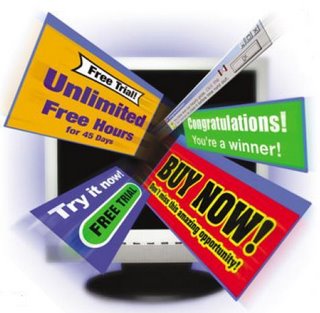Should You Say You Enjoy It?
The time you enjoy wasting is not wasted time. — Bertrand Russell
What are some topics or activities that you’re unwilling to admit you enjoy?
Enjoyment is a fundamental human experience – and one of the most sought out. But, when you say you enjoy something, what does that say about you? Why might there be some things you wouldn’t tell others that you enjoy doing?

There has been a lot of research examining what leads people to enjoy an activity or experience. But surprisingly, there is little research on what we think about others when they say they enjoy an activity or a domain.
In recent research by my colleagues and I, we examine this question in the context of selling a product/service. In other words, if you enjoy making a product or offering a service, should you tell your potential buyers that you enjoy the process behind it?
THE DEFINITION OF ENJOYMENT

Enjoyment is one of many different positive emotions we feel. For example, it can seem similar to happiness, excitement, or even being at peace. But there is something unique about enjoyment.
Enjoyment is about feeling pleasure, liking, or fun directed toward a specific activity.
In short, whereas happiness, excitement, and peace all happen to you, enjoyment happens because of you and what you’re doing.
So, what does it mean when you say you enjoy something?
Answering this question is important not only in your day-to-day communications, but especially if you sell services or products. Whether you do that on Etsy.com, at farmer’s markets, or even sales for a big company, there are benefits of communicating that you enjoy what you do.
SELLING YOURSELF
For independent entrepreneurs, you have the challenge of trying to convince random strangers that what you sell is worth buying.
Typically, when consumers buy products off websites like Amazon or Target, they know something about the product from its brand history. Some brands you trust, others you don’t.

However, for people on peer-to-peer networks – websites like Etsy, Fiverr, or UpWork – or real-life markets – like farmer’s markets, craft fairs, or other pop-up events – sellers generally don’t have name brand recognition.
Instead, they have to figure out ways to communicate that their product or service is high quality.
And one strategy to accomplish this can be to communicate your enjoyment.
ENJOYMENT = HIGH-QUALITY
A long line of prior research would suggest you should stay silent about your enjoyment. Buyers are willing to pay more for a product or service when they think a lot of effort went into it. So, if you said you enjoyed something, people might think you didn’t put in much effort.
But that is not what we found.
In one study, we placed advertisements on Facebook for a business specialist that either said he had a lot of experience, or he had a lot of experience and he enjoyed the job.
We then showed these ads to small business owners and found that the ad that mentioned enjoyment resulted in significantly more people clicking on the ad.

In another study, we reserved a booth at a university student fair. At it, we offered one of two brownies to attendees. One brownie had a quote from the head chef that said this was her most popular brownie. The other brownie had a quote saying this was the one she enjoyed making the most.
If you saw this, which brownie would you choose?
Out of the 300+ people that stopped at our booth, over 65% of people chose the enjoyably made brownie over the popular one.
Across our research, we found that when people hear that others enjoy making or doing something, they assume that whatever product or service they’re offering is high quality.
When someone enjoys an activity, we assume they are internally motivated to do it well. This means we think they’ll focus more and even put in more effort to what they’re doing.
A COUNTER INTUITIVE EFFECT
Interestingly, most sellers don’t realize the power of enjoyment. Out of thousands of profiles we collected from Etsy.com, only 1% of them mentioned their enjoyment.
This is because we find that sellers are reluctant to share that they enjoy making or doing something. Sellers believe that when they enjoy a task, they should charge less for it, because there was less emotional labor that went into the task.

In other words, the products or services that sellers enjoy making are the ones that buyers are willing to pay more for but sellers think to charge less for.
So, to return to this post’s title, should you tell people you enjoy something? If you want them to think you are skilled at making the product or offering the service, then the answer is resoundingly yes. Which leaves us with the final question:
Did I enjoy writing today’s post?
Enjoyably,
Jake
Everyday Psychology: Although today’s post described the benefits of expressing your enjoyment, expressing it isn’t always the right tactic. In this research we find that if you express enjoyment for low skill tasks, enjoyment has no effect on buyers’ interest in the product/service. For example, if you are completing very simple tasks or using automated machinery, expressing enjoyment signals that you’re not very skilled at the activity. In other words, we assume that the only people who enjoy simple tasks are those who can only do simple tasks. So, when expressing your enjoyment, make sure to express it about something that requires some skill and creativity to be seen as an expert!
Paley, A., Smith, R. W., Teeny, J. D., & Zane, D. M. (2024). EXPRESS: Production Enjoyment Asymmetrically Impacts Buyers’ Willingness to Pay and Sellers’ Willingness to Charge. Journal of Marketing. https://journals.sagepub.com/doi/abs/10.1177/00222429241257913







